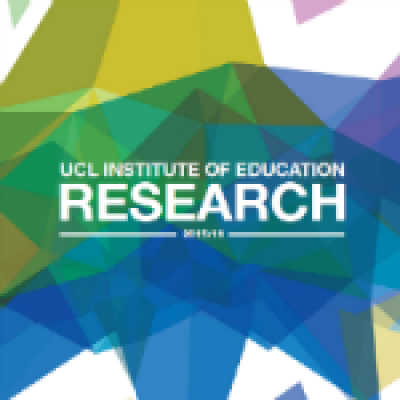New book explores the challenges of transitioning into adulthood
24 October 2017

A new book by Professor Ingrid Schoon from the UCL Institute of Education (IOE) explores young people's transition to adulthood, investigating the role of social inequality, individual motivation and social change.
Edited in collaboration with Professor Rainer Silbereisen from the University of Jena in Germany, the book, 'Pathways to Adulthood', tackles three main themes as young people navigate this transition: how to reduce social inequality in educational opportunities; to promote motivation and engagement in the school context and beyond; and to enable young people to effectively cope with social change.
Central to the book's approach is the examination of the interplay between social structures and individual agency - how institutions channel available transition pathways and opportunities and how individuals, in turn, perceive and shape the context that influences them.
Using robust evidence from large scale, longitudinal and comparative studies, Professor Schoon and her colleagues explore the role of globalisation on adulthood, noting how traditional pathways from school to employment are "a thing of the past." She explains that, in the face of rapid social and economic change, young people must navigate an untested territory characterised by uncertainties about their aims and means. In order to cope with these uncertainties, Professor Schoon argues that young people must become entrepreneurial in their habits, exert self-efficacy and take initiative.
The book highlights persisting socio-economic inequalities and their impact on educational attainment. The authors emphasise the importance of reducing structural inequalities to increase motivation and engagement in the school context, and suggest mechanisms that could help young people realise their full potential. For example, they assess how the influence of socio-economic family background on academic attainment varies across culturally similar countries such as the US, UK, Canada and Australia, which highlights the critical role of institutional leverage in supporting youth transitions.
The authors also explore the development of motivational processes related to achievement and wellbeing, particularly regarding students' engagement in school. Students' engagement is an important and malleable precursor of academic achievement that can be shaped by experiences in the school context. Professor Schoon argues that, to raise engagement, pupils should be taught in ways that establish meaningful connections between the usefulness of a taught subject (for example mathematics) or activity in their daily lives and how it can help them to achieve future goals.
The book furthermore addresses the extent to which social change can transform pre-existing trends of behaviour for the better, or introduce new obstacles that can appear insurmountable and limit the perception of a young adult's potential to effectively cope. The authors explore young people's responses to the aftermath of the break-up of the Soviet Union, German unification, and the 2008 Great Recession, examining the different coping mechanisms that enable individuals to maintain a sense of control over their lives.
'Pathways to Adulthood' brings together research by leading experts and young scholars in psychology, sociology, economics, social policy and education, who represent an international team of post-doctoral fellows and mentors. It opens up new research avenues on the transition to adulthood and provides evidence from different countries, thereby contributing towards a better understanding of general versus country-specific patterns linking socio-economic inequality, motivation and social change to experiences of youth transition.
The book showcases the work resulting from an international post-doctoral Fellowship programme, 'Pathways to Adulthood', which was established at the IOE in 2008 and runs until 2018.
Speaking of the Programme, Professor Schoon said:
"The Pathways Mentoring Programme offers a new and comprehensive model of internationally collaborative post-doctoral education and training. Every fellow has several mentors from different institutions, with different backgrounds and approaches, which goes far beyond the usual one-to-one relationship at institutions of higher education.
"The fellows have the opportunity to participate in an international network of established researchers, to get hands-on experiences in different labs, to encounter different mentoring styles and feedback from different perspectives. There were intensive collaborations among the Fellows themselves, who are now leading experts in their own right, training the third generation of developmental scientists."
The book launches on Monday 6 November at the IOE.
Media contact
Rowan Walker
Email: r.walker@ucl.ac.uk
Tel: +44 (0)20 3108 8815
Links
- Launch event on 6 November 2017
- Pathways to Adulthood
- Professor Ingrid Schoon's research profile
- Department of Social Science
 Close
Close


